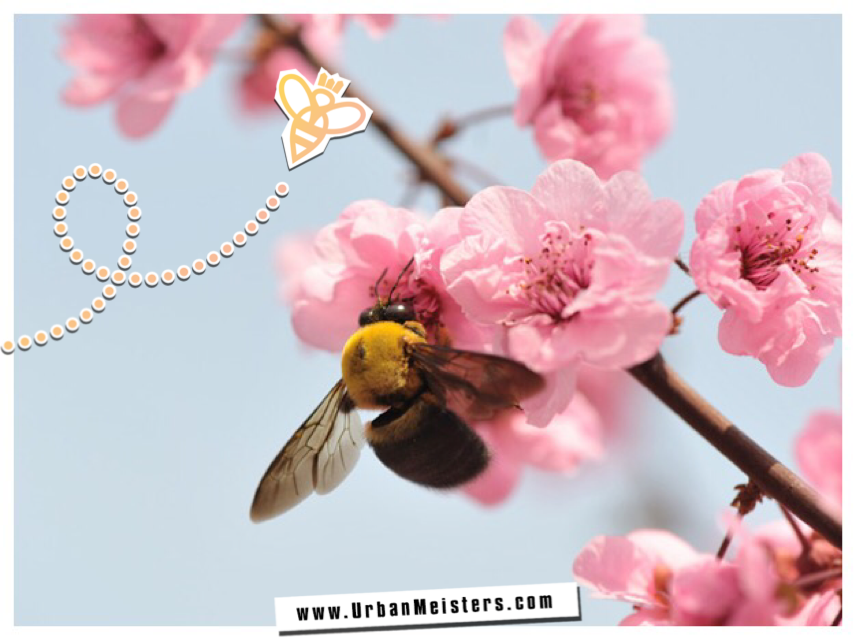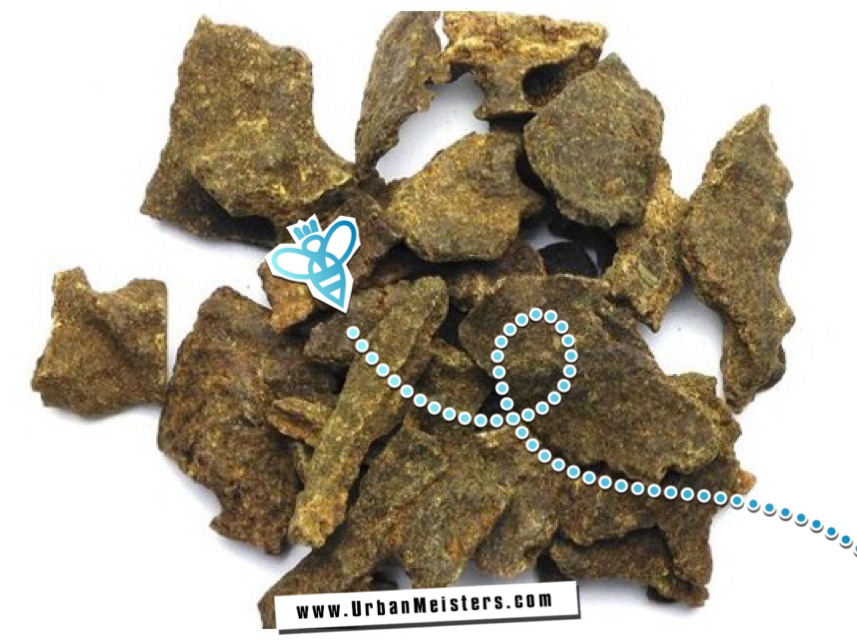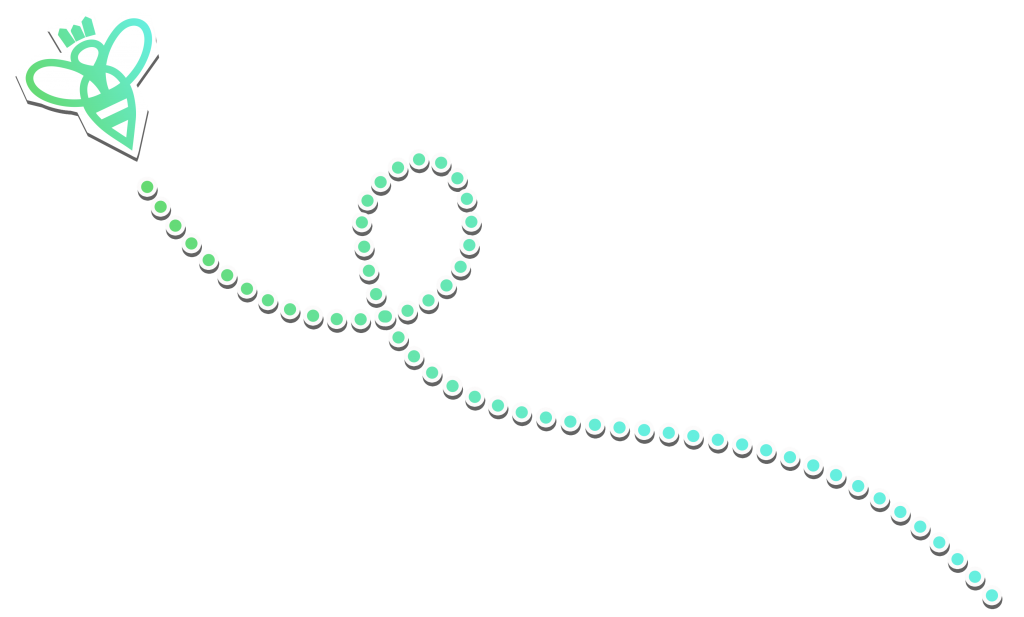Our loyal readers would know how BEE- Crazy we are! From being our mascot to urban role model, Bees are much loved here at urbanmeisters.com! Today we bring to you face to face with how beneficial bee products are for humans. Rich products produced by bees that are good for our health and wellbeing in the restless city life. And helping us with this is expert urban bee-keeper and ‘Meister’, Emily Gimellaro, aka Bearfootbeekeeper with special advice on what to watch out for while buying these in the market.
Meet the Bee-Meister
To understand the different bee-products we have collaborated with a dedicated urban beekeeper- Emily Gimellaro. Emily is a mother of two little ones aged 3.5 and 1.5 and a host of bees that live in a natural beehive in her backyard in Australia.
Emily is a firm believer in keeping pollution out of her home, food and products they use in daily life. As such she likes to make as much as she can herself at home. “This way I know exactly what my kids and I are consuming and putting on our skins.” she says. So it fascinating to listen to her expertise not only as far as bees are concerned, but also on how to live healthier and be more sustainable overall.
Made by Bee
Now make no mistake, the diverse and rich bio-products made by bees are not with the sole purpose of serving us urbans! The bees need these products to survive and have the beehive function like clockwork. But we humans have harnessed the goodness of these products since times immemorial as shown by these ancient cave drawings.
There are two types of bee products:
- Plant origin: Honey, pollen and propolis. Basically products that the bees collect and store in the beehive.
- Animal origin: Royal jelly, beeswax and and bee venom. These are produced by the bee body itself.
With Emily we have selected the following key products that have been creating much buzz for their health benefits as super-foods.
Honey
What is it? Honey is produced by bees by gathering nectar from specific flowers of honey producing plants and leaves of trees which explains why there are different kinds of honey. The bees than add specific substances from their body and turn the nectar into honey.

Health benefits: Don’t dismiss this merely as your grandma’s remedy for sickness. Various scientific studies have confirmed it’s various health benefits (Source) for us urbans. Because of it’s very particular and diversified composition, honey’s goodness list is very long. Made up of over 80% carbohydrates (most important source of energy for your body). Our digestive system changes these carbohydrates into glucose (blood sugar). Honey also contains enzymes (crucial for digestion) and amino acids (needed to build proteins without which we cannot function). This bee-product also contains the complete spectrum of B vitamins as well as Vitamin C, D, E and K (Source). Also it has a diversified offer in minerals like calcium, zinc, iron, potassium, magnesium(Source) and even antioxidants like flavonoids (Source).
Honey plays a key role in disease prevention as it boosts and strengthens our immunity. It also helps to reduce the risk of cancer and heart disease. Studies show that honey can also treat ailments. It serves as a natural antibiotic and reduces ulcers and other gastrointestinal disorders. Honey’s anti-inflammatory talents help soothe cough and throat irritations, improve asthma and bronchitis. It helps to reduce seasonal allergy symptoms from pollen allergy. It regulates blood sugar and helps control blood pressure and cholesterol. It is also applied to wounds and burns.
As far as pollution is concerned, honey can be a great ally. Our liver needs a detox from time to time from the toxic intake of pollution from various sources. The super-simple receipt that my grand-ma gave me is what is also what is recommended by other health experts.
–> Squeeze 1/2 of lemon in lukewarm water and add one teaspoon of honey. Drink this first thing in the morning.
In the evening honey calms down the nervous system and helps against insomnia or bad sleep quality.
But, the list of honey health benefits is not ended yet. You can read more here 1, 2, 3, 4.
What you need to watch out for: Beekeeper Emily however alerts us on an important thing. Unless the honey is raw and you know where it comes from it is not worth buying and consuming. Many mass market honey packs are heat treated and bleached. Also there are fake hones that have been mixed or totally replaced with glucose syrups or bees have been fed with sugar products. Also much honey is imported from China which increases our carbon footprint through the emissions associated with transport. Emily recommends us to go for raw honey from a natural and local bee hive where you have transparency in the production process. A good test of quality honey is keeping the pack in the refrigerator. If it crystallises then you know it’s not pure honey and sugar has been added to it.
Bee pollen
What is it? Pollen is actually the dust found on the plant stamen, gathered and carried to the beehive by the bees. This is an essential ingredient to the life of every beehive. Without pollen, bees could not produce food for the embryo and the “mother”, which would lead to their extinction. While honey provides bees with fructose and glucose sugars, enzymes and mineral ingredients, pollen provides them with sufficient protein, fats, vitamins and minerals.

Health benefits: For us urbans pollen is considered a superfood due to its unique composition of a large variety of precious ingredients that cannot be imitated. It contains fewer carbohydrates (around 50%) but more proteins (30%). It is said to be nature’s most complete nourishing food with nearly all nutrients that humans require. There are about 250 substances, including Vitamins like Provitamin A, Vitamin B1, B2, B3, B5, B6, C, D, E, H, K, …, 25 minerals, 11 enzymes and 59 trace elements. It is for example supposed to contain around 20 out of 23 known amino-acids. A concoction that can be made only exclusively by nature and cannot be synthesised in a lab.
Its efficacy has been proven in studies where pollen showed remarkable anti-inflammatory talents that have been compared to drugs and can be used in acute and chronic inflammatory conditions, liver disease or toxicity.
Other studies have proven it’s antioxidant properties making it help fight cancer, cardiovascular diseases, diabetes and hypertension. Pollen boosts the immune system and protects against allergies.
Particularly for stressed and over-worked urbans, pollen boosts mental capacity and strengthens the nervous system and is thus a super-performing stress reliever. It can help mom and dads to be with infertility problems as it stimulates ovarian function. It could be used as a supplement in weight loss. To discover more read 1, 2, 3, 4.
What you need to watch out for: The benefits of bee pollen can be enjoyed as raw granules added to foods, capsules, liquids or tablets. Emily however alerts us that this elixir belongs to the bees, not people. Bees make bee bread out of the pollen that is fed to their young. The methods of extraction aren’t bee friendly. Basically bees collect pollen on little baskets on their legs and beekeepers place a little comb like structure at the entrance that the bees then have to climb/drag themselves over which removes the pollen and subsequently bee body parts. If you want to eat bee pollen for the health benefits then find some honey from a natural and ethical hive where the ‘bee bread’ is crushed along with the honey from surplus honey. Also a little of pollen gets left around on the wood frames in the hive so again try to go for local beekeepers where you have transparency about the methods. The effort is absolutely worth it given the various health benefits and in the end it also protects the bees and their health.
Propolis
What is it? Propolis (from Greek Pro = in front and Polis = city, defense) is a mixture of wax and glutinous substances and is essentially ‘bee glue.’ It is used by the bees to defend the honeycomb and to seal the gaps. It performs the role of disinfecting the wax cells and the entire beehive. It contains mainly resin and beeswax (80%), and also aromatic ethers and oils and pollen.

Health benefits: Propolis is another nature wonder that cannot be re-created by humans! Propolis contains more than 300 different substances including all the known vitamins except one, Vitamin K. Certain components are so complex that their identification and categorization is yet to happen!
It is also called Russian Penicillin thanks to its antibiotic properties . They are taken in liquid or capsule form for colds, flus, inflammation of the sinuses, lungs, and topically for tumors, burns and other skin issues. What is particulary powerful is that propolis has the ability to potentiate other drugs, including conventional penicillin, 10 to 100 times.
What you need to watch out for: Here Emilies recommendation is just the same as for honey. Bees don’t produce a great deal of propolis as they only really use it to seal up any cracks. ‘Bee’ wary of where and how it is collected and go for a local and natural beehive.
Royal jelly
What is it? Royal jelly has also become very popular in the last years. The fascination for royal jelly comes through the fact that only the Queen B of the beehive is continuously fed with this elixir. Royal jelly is created by worker bees secreting their saliva. The Queen B eats only royal jelly and can lay around 2500 eggs a day, lives up to 4-5 years, which is a much longer life-span than other bees.
However Emily urges us to respect our bee friends and not to go for Royal jelly as there is no way to naturally extract it and we back that plea fully! With natural raw honey, pollen and propolis you have more ethical alternatives to get a pure infusion of health and youth.
Honey, pollen and propolis are a must have for urban health. They have diversified powers that fit the needs of our urban life so well that what ever your daily challenges are, you cannot go wrong with one of the bee-products. But do pay attention where the products come from and support ethical, sustainable and local producers.
If you go for bee-products for a specific illness and in addition to your medication, do discuss with your doctor for the right way to do it.
Honey can be consumed on it’s own and in combination with other ingredients in a variety of DIY recipes for health and beauty! Have some of your own? Share with us by commenting below or writing us an email here. We’ll look forward to some BEE-wonders form you!


![[ALERTE GREENWASHING – CHAMBRE ENFANT] Les conseils pratiques d’un père engagé](http://urbanmeisters.com/wp-content/uploads/bfi_thumb/dummy-transparent-pyhloyclal4p5ty8tb4matytlyd4xyugzcd2z17fr6.png)